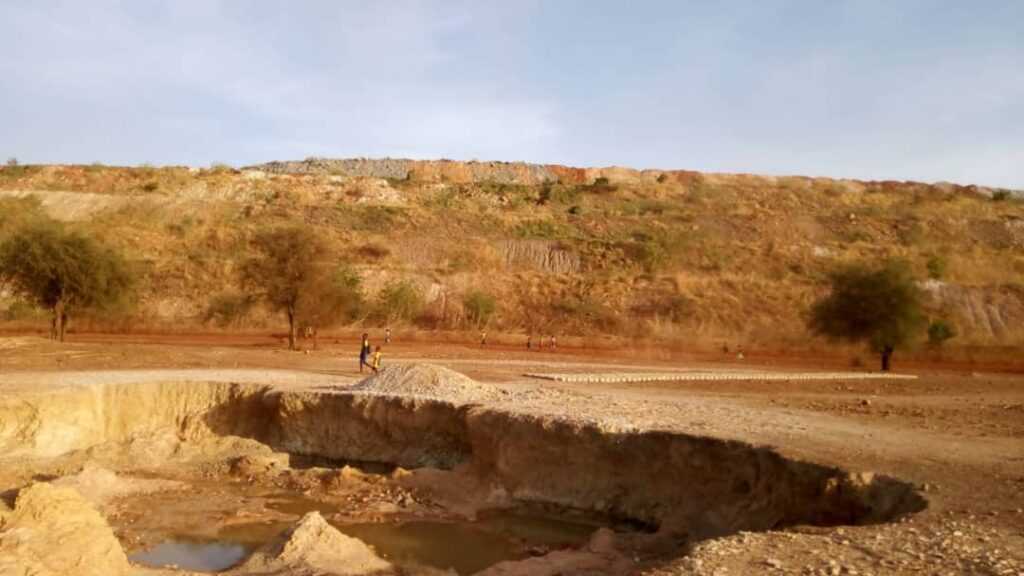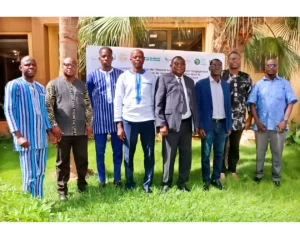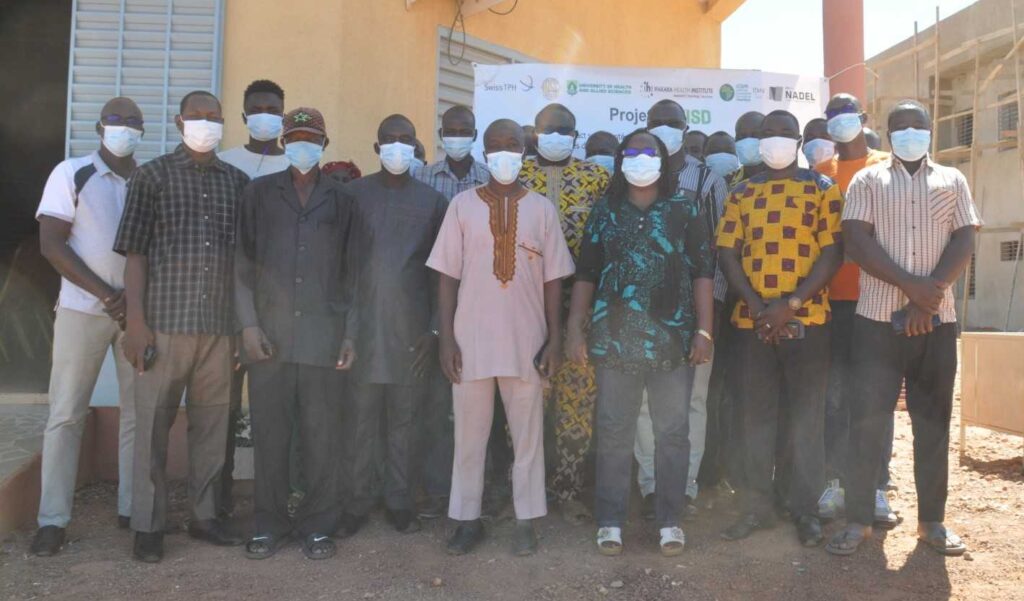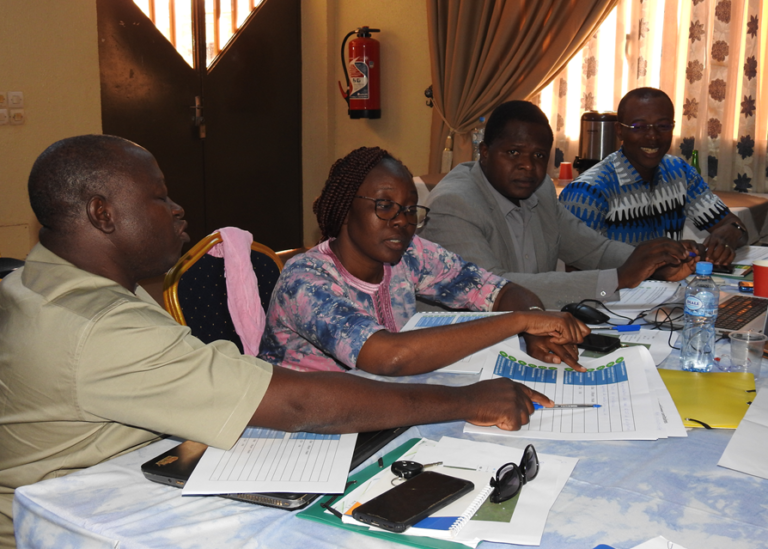

The HIA4SD project partner in Burkina Faso is the Research Institute of Health Sciences (IRSS). In 2019, the project conducted focus group discussions and interviews in communities near three major gold mining projects in Houndé, Bagassi and Kongoussi health districts. A wide range of local stakeholders, including representatives from the mines, the health care sector and community members were consulted to understand local perceptions of health impacts. In addition, interviews with stakeholders at the central-level within Ministries, mining companies and civil society organizations were conducted to discuss potential policy options for managing health impacts of mining projects.
The results from the first phase of the HIA4SD project have been summarized in a series of documents:
 National expert workshop in Ouagadougou
National expert workshop in Ouagadougou
An expert workshop with key institutional stakeholders was held in Ouagadougou on 30 August 2023.
The workshop facilitated exchanges and discussions among professionals in the health and environmental sectors. Participants discussed opportunities for integrating Health Impact Assessment (HIA) into current impact assessment practices. They explored concrete suggestions, encompassing regulatory adjustments, institutional considerations, and capacity-building needs, with the aim of advancing policy development.
Multi-stakeholder workshop in Ouagadougou
A multi-stakeholder workshop was held in Ouagadougou on 30 July 2021. A broad set of high-level participants from the government, ministerial bodies, mining companies and academia discussed on how health can be promoted in industrial mining areas.
The HIA4SD project team used this opportunity to present the findings from the first phase of the project. The presentations focused on the various impacts of mining projects on community health as well as on policy options identified in the Q-study conducted with various stakeholders from government, the private sector, and civil society from Burkina Faso.
The fruitful discussions were a first step to initiate the ongoing policy dialogue in Burkina Faso. As a next step, the local project team will return to the different mining sites in Burkina Faso where data was collected. There, local authorities and communities will be informed about the findings in order to extend and continue the dialogue at the local level.
The presentations of the workshop can be accessed here.
Local-level restitution workshop in Houndé, Bagassi and Sabcé
Between 18 and 23 November 2021, separate workshops took place in Bagassi, Houndé and Bagassi. The participants included representatives of the Town Hall, the mines, the health district authorities, local environmental services, civil society organizations, associations and the community. In each workshop, the local-level stakeholders were engaged to discuss on mining-related health aspects in their communities. The workshops featured presentations about the HIA4SD project activities, main results from the research phase of the project and the Q-study, and the next steps in the policy dialogue. In addition to these presentations, the local stakeholders discussed ideas for partnerships with the mines for improving health in their community and laid our options for future health development plans. Overall, the participants appreciated the opportunity to participate in the policy dialogue and to be informed about the research findings of the HIA4SD project.
Click here for a more comprehensive workshop report (French).

Group picture of the meeting in Sabcé
Capacity building is an integral part of the HIA4SD project activities in Burkina Faso. Following the 1st course on HIA held from May 31 to June 2, 2022 in Ouagadougou, a 2nd course was organized from February 21 to 23, 2023 for agents of the National Environmental Assessment Agency (ANEVE).
The courses aimed to provide a solid understanding of HIA and to raise awareness on its potential to promote health and well-being. In addition to theoretical inputs on the different steps of the HIA approach, the course included interactive group activities, with a focus on specific case studies from Burkina Faso.
Over the course of the two trainings 47 participants from various professions such including Senior Environmental Technician, Environmental Inspectors, Human Resources Managers, Advisors in Studies and Analyses Option attended the training. Since ANEV is at the center of the validation of environmental studies, and given the commitment and recommendations during the course of these different evaluation specialists, we can say that the promotion of HIA in Burkina Faso has started well.
Click here for the complete training report (French).
Click here for detailed information on training possibilities.

Research Institute of Health Sciences (IRSS)
Prof. Serge Diagbouga
Project leader in Burkina Faso
The HIA4SD project is international research project lead by a multinational consortium based in Burkina Faso, Ghana, Mozambique, Switzerland and Tanzania. The project aims to strengthen the application of health impact assessment as a regulatory mechanism to engage natural resource projects in working towards the 2030 Agenda for Sustainable Development. The project is funded by the r4d programme, which is a joint initiative of the Swiss National Science Foundation and the Swiss Agency for Development and Cooperation.